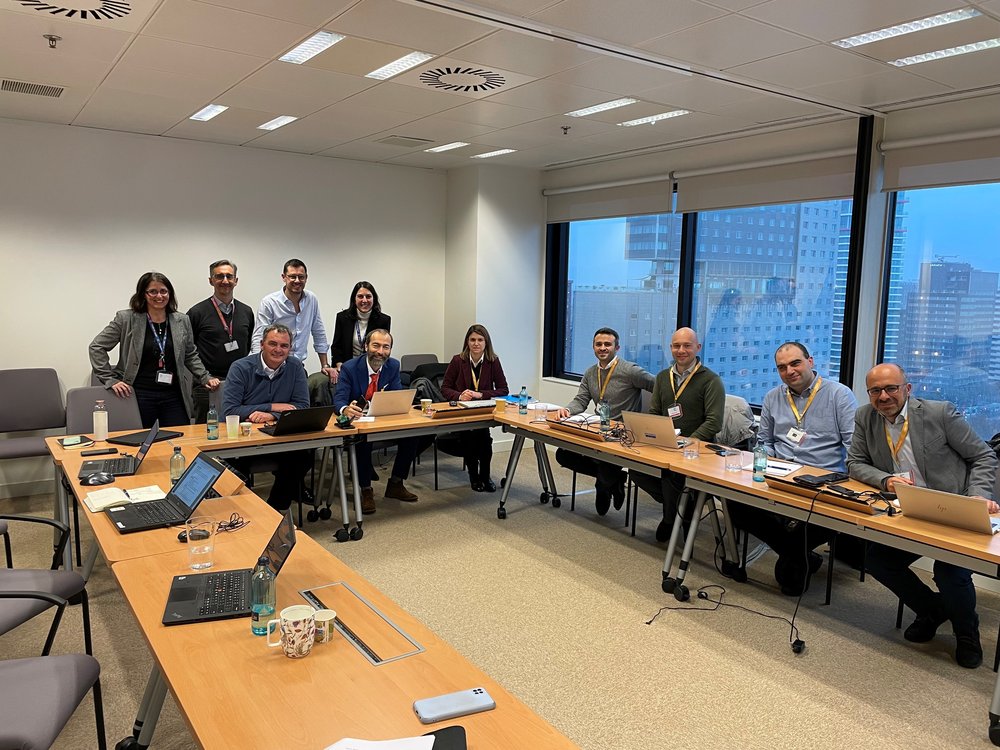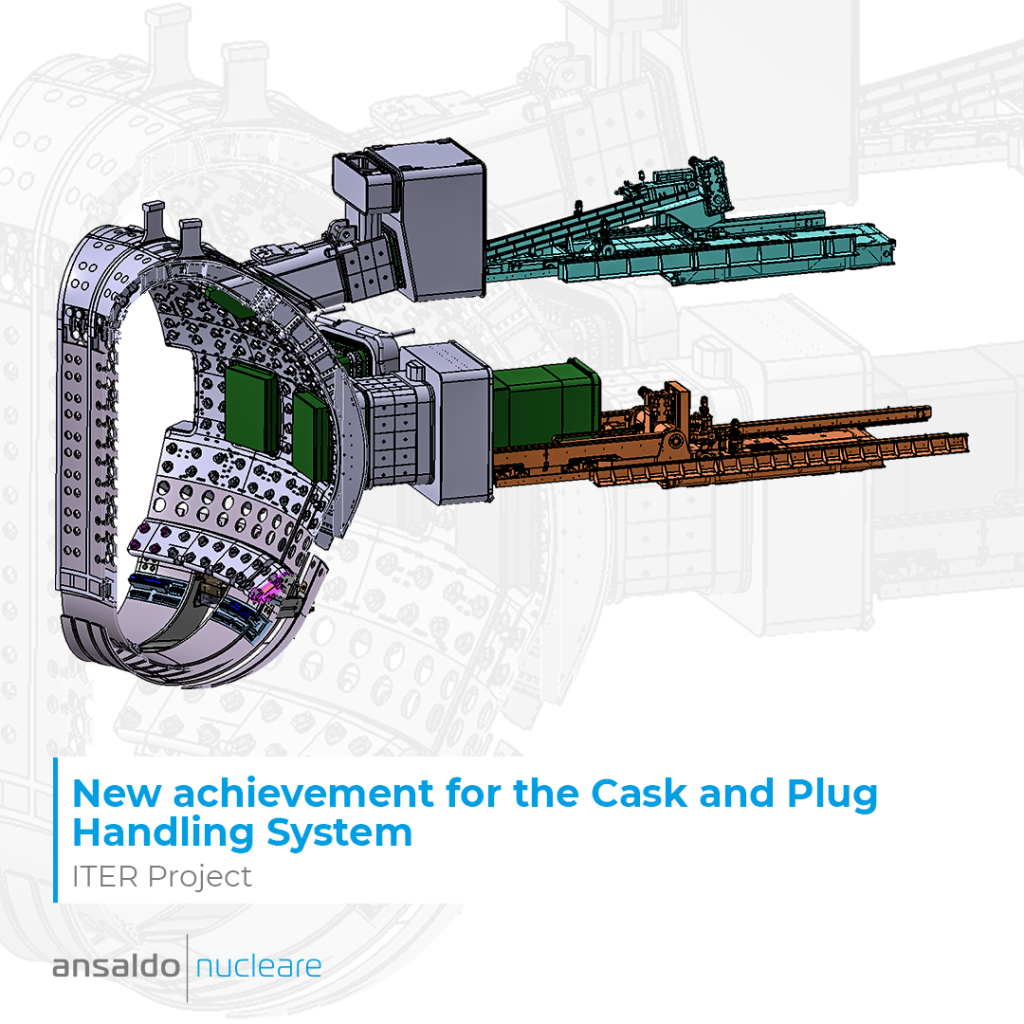F4E and Ansaldo Nucleare kick off collaboration for ITER Remote Handling equipment

Representatives from F4E, ITER Organization and Ansaldo Nucleare during the kick-off meeting of the Remote Handling Cask and Plugs contract, January 2024. ©F4E
The ITER Remote Handling systems will help operators to transport, maintain and replace the heavy components of the device exposed to radiation. These tasks will be performed with man-in-the-loop applications and virtual reality models because technicians will not be able to enter inside the heart of the reactor. Europe is responsible for four out of the six remote handling systems that ITER will rely on top operate. One of them deals with the transport of port plugs, which can be described as “boxes” the size of a small bus, housing sensitive and necessary equipment.
A total of 14 port plugs at the tokamak equatorial level, and 14 at the upper level, will host diagnostics, some of the equipment of the ion and electron cyclotron heating systems , and that of test blanket modules. During maintenance, port plugs will need to be transferred in and out of the machine, at different levels or buildings inside double door containers known as casks. It is estimated that 15 of these casks will need to be produced measuring up to 8.5 m x 3.7 m x 2.6 m, weighing up to 100 tonnes when fully loaded.

Following the signature of a contract between F4E and Ansaldo Nucleare, the manufacturing is expected to start soon for the first phase of casks. Europe’s strategy is to develop initially a simpler version of the equipment, in line with ITER’s assembly needs. Early in January, the F4E Remote Handling Programme hosted in Barcelona the kick-off meeting of its first manufacturing contract to launch the production of three machines: i) the vehicle to transport the port plugs through the ITER buildings, ii) a machine for the installation of an equatorial port plug, iii) a machine for the installation of an upper port plug. The delivery date of these systems is scheduled for 2026.
Building on lessons learnt, further expertise in manufacturing, and takeaways from operation, the more sophisticated version of these pieces of equipment will be later developed fit for nuclear operations. Working as one team, F4E and ITER Organization reviewed together the technical documentation, and discussed the planned activities with the contractor.
Darren Locke, F4E’s Project Manager for the Cask and Plug Remote Handling System, explains: “The kick-off of this contract is the culmination of five years of design development in the support of ITER assembly. This contract represents a major milestone for F4E’s Remote Handling Programme as it will deliver the first operational device in this area. Thanks to these machines we will gain a lot of experience for the full-functionality casks which will be delivered later in the programme. This approach has only been possible with the close collaboration between F4E, ITER Organization, and Ansaldo Nucleare, who previously developed the final design.”